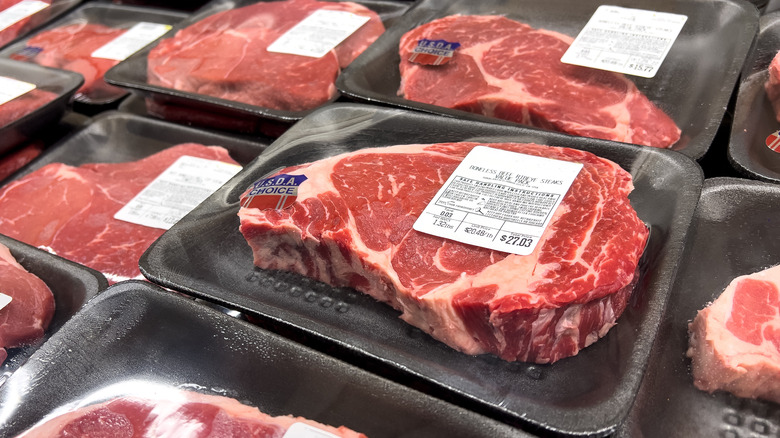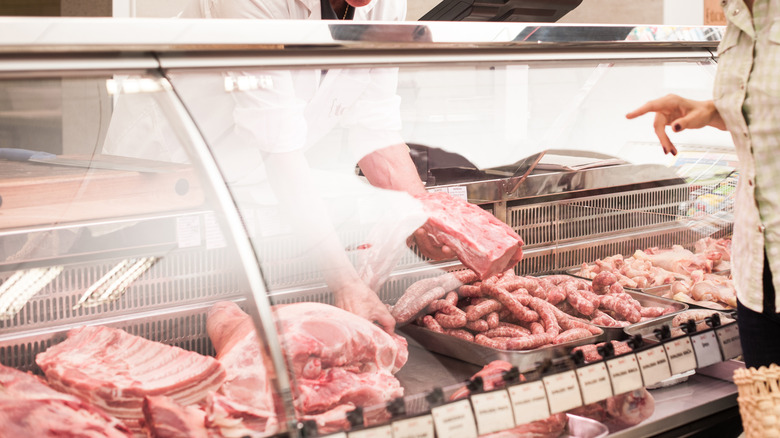You Shouldn't Automatically Trust The 'Produced In USA' Label On Meat
Being a conscientious carnivore often involves parsing through the multitude of labels on items like beef, poultry, and eggs. These labels, such as those that specify meat as being GMO-free or USDA approved, are intended to direct consumers towards more sustainable, environmentally-friendly options. However, not all of these labels are as honest as one would hope. One type of untrustworthy label is the one that specifies a product as being "Made in" or a "Produced in the USA." These are often used as a marketing tool to attract buyers and can be misleading.
"Made in the USA" labels are not strictly required by the FDA, even for food that actually was produced in America. Instead, it is a voluntary label, which means that meat companies can elect to display it on its packaging if it meets certain requirements. Currently, those requirements do not include an animal actually being born, raised, and slaughtered in the U.S. "It is a fairly hollow claim," says Walden Local Meat Co.'s Director of Strategic Partnerships Kristen Kilfoyle Boffo, "given internationally raised and slaughtered animals can be deemed a product of the U.S., because they're packaged here" (via The Spruce Eats).
Meat only has to be packaged in the U.S. to receive the label
Under the current system, it is almost impossible to tell where a piece of meat actually came from and under what conditions the animal was raised. That can be very disheartening for people who try to eat ethically-sourced animal products or who are concerned about the environmental effects of international shipping practices.
Fortunately, change may be on the horizon as the Food Safety and Inspection Service has proposed a new rule that requires livestock to actually be born, raised, and slaughtered on American soil to qualify for these labels. If this new regulation is approved, it would not only help make the labeling less confusing to consumers, it would also help American ranchers who are competing with big companies that make misleading claims about the source of its products.
As it stands, the only way to know for sure if the meat you buy for grilling is actually made in the U.S. is to do your research on the company that produced it. It also pays to get to know your local butcher, and to see if there are any ranchers that you can support rather than buying from generic brands. One of the most important factors when buying steak is where it comes from, so make sure you buy something you'll be proud to eat.

